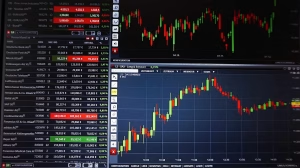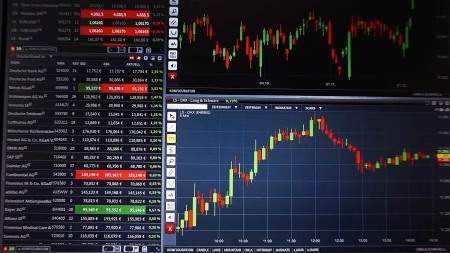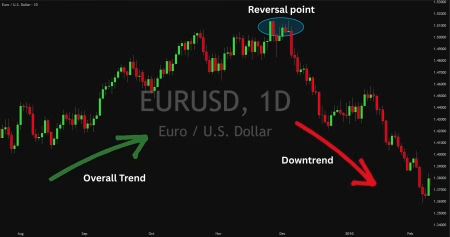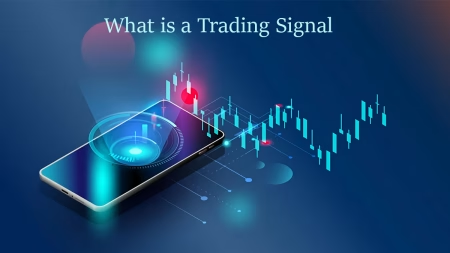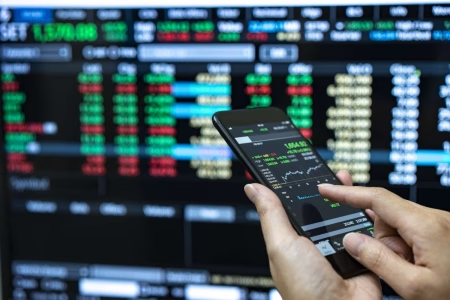The world of Forex trading—also known as foreign exchange trading—can seem complex and intimidating, especially for beginners. However, with the right guidance, tools, and mindset, anyone can learn how to trade forex and begin building a strong foundation for potential financial success.
In this comprehensive guide, we’ll cover everything you need to know about Forex trading for beginners, from the basics of how forex works to tips for developing your own trading strategy. Whether you’re looking to generate passive income or start a full-time trading career, this article is your roadmap to entering the exciting world of currency markets.
What is Forex Trading?
Forex (Foreign Exchange) trading involves buying and selling currencies on the global market. Traders speculate on the price movement of currency pairs such as:
- EUR/USD – Euro vs. U.S. Dollar
- GBP/JPY – British Pound vs. Japanese Yen
- USD/CHF – U.S. Dollar vs. Swiss Franc
The goal of forex trading is to profit from the changes in exchange rates between two currencies. Since the forex market is the most liquid and largest in the world—trading over $6 trillion daily—it offers vast opportunities for both short-term and long-term traders.
How Does Forex Trading Work?
Forex trading is always done in currency pairs. When you trade a pair, you’re simultaneously buying one currency and selling another.
For example, in the EUR/USD pair:
- If you buy the pair, you’re betting the euro will strengthen against the dollar.
- If you sell the pair, you believe the euro will weaken relative to the dollar.
The market operates 24 hours a day, five days a week, and is divided into major trading sessions:
- Asian (Tokyo)
- European (London)
- North American (New York)
This allows traders from all over the world to participate at any time of the day.
Why Trade Forex?
There are several reasons why forex trading for beginners is appealing:
1. Low Barrier to Entry
You can start trading with a small deposit—some brokers allow accounts with as little as $10.
2. High Liquidity
The forex market has enormous trading volume, allowing for quick execution of trades and tight spreads.
3. Leverage
Forex brokers offer leverage (up to 100:1 or more), allowing traders to control larger positions with less capital.
4. 24-Hour Access
Unlike stock markets, forex markets don’t close at 4 p.m. You can trade anytime from Monday to Friday.
Getting Started: Steps for Forex Trading Beginners
1. Learn the Basics of Forex
Before risking any money, take time to understand:
- What drives currency prices
- Market terminology (pips, lots, spreads, leverage)
- How to read a forex quote
- Types of analysis (technical, fundamental, sentiment)
There are many free and paid online courses tailored for forex trading for beginners.
2. Choose a Reliable Forex Broker
Pick a broker that is:
- Regulated by reputable bodies (e.g., FCA, CFTC, ASIC, CySEC)
- Offers user-friendly platforms (e.g., MetaTrader 4 or 5)
- Has competitive spreads and commissions
- Provides demo accounts and educational resources
Popular brokers include:
- IG Markets
- OANDA
- Forex.com
- XM
- IC Markets
3. Open a Demo Account
A demo account lets you practice trading with virtual funds in real market conditions. It’s the best way to:
- Learn the platform interface
- Test strategies
- Build confidence without financial risk
Stay in demo mode until you can consistently make profits and understand how to manage risk.
4. Understand Currency Pairs
There are three main types of currency pairs:
- Major Pairs:
Include USD and are the most traded (e.g., EUR/USD, USD/JPY)
- Minor Pairs:
Don’t include USD but involve major currencies (e.g., EUR/GBP, AUD/NZD)
- Exotic Pairs:
Involve a major currency and an emerging market (e.g., USD/TRY)
Start with major pairs as they have better liquidity and tighter spreads.
5. Learn to Read Charts and Use Indicators
Forex traders use technical analysis to make decisions. Common tools include:
- Candlestick charts
- Moving averages (MA)
- Relative Strength Index (RSI)
- MACD (Moving Average Convergence Divergence)
- Support and resistance levels
Use charts to spot trends, reversals, and entry/exit points.
Essential Forex Trading Tips for Beginners
✅ Start Small
Don’t risk all your capital on a single trade. Start with small position sizes and grow slowly.
✅ Use a Trading Plan
Define your strategy, risk tolerance, trading hours, and goals. Stick to your plan.
✅ Master Risk Management
Use stop-loss and take-profit levels to control losses and lock in gains. Never risk more than 1-2% of your capital on a single trade.
✅ Avoid Overtrading
More trades don’t equal more profits. Focus on quality setups, not quantity.
✅ Stay Updated with Economic News
Events like interest rate decisions, inflation data, and employment reports move the markets. Use an economic calendar to stay informed.
✅ Keep a Trading Journal
Track every trade—entry/exit, size, rationale, and outcome. This helps improve your strategy over time.
Common Mistakes Beginners Should Avoid
❌ Trading Without Education
Jumping into live trading without proper learning is like gambling. Study first, trade second.
❌ Using Excessive Leverage
While leverage can magnify profits, it also increases risk. Beginners should use minimal leverage to avoid account blowouts.
❌ Following the Crowd
Blindly copying others’ trades (especially from social media) is risky. Understand why a trade works before placing it.
❌ Ignoring Emotions
Fear, greed, and revenge trading are common pitfalls. Develop emotional discipline and stay objective.
Choosing a Trading Style
As you progress, you’ll discover different forex trading styles:
- Scalping:
Short-term trades lasting seconds or minutes; high frequency.
- Day Trading:
Trades closed within the same day.
- Swing Trading:
Holding trades for days to weeks to capture broader moves.
- Position Trading:
Long-term trading based on macroeconomic trends.
Choose a style that suits your lifestyle, personality, and risk tolerance.
Tools and Resources for Forex Beginners
- Trading Platforms:
MetaTrader 4 (MT4), MetaTrader 5 (MT5), cTrader
- News Feeds:
ForexFactory, Investing.com, DailyFX
- Economic Calendar:
Stay updated on upcoming market-moving events
- Charting Software:
TradingView is a powerful tool for analysis
- Forex Forums and Communities:
Engage with other traders to share ideas and learn
Final Thoughts on Forex Trading for Beginners
Forex trading can be rewarding, but it’s not a get-rich-quick scheme. It takes time, discipline, and continuous learning to become consistently profitable.
As a beginner, focus on building a strong foundation—learn the basics, understand the risks, and practice with a demo account. Start small, manage your risk, and never stop improving your strategy. Most importantly, treat trading like a business, not a hobby.
By following this beginner’s guide and committing to long-term growth, you can join the ranks of successful forex traders who understand that success is built one informed trade at a time.


